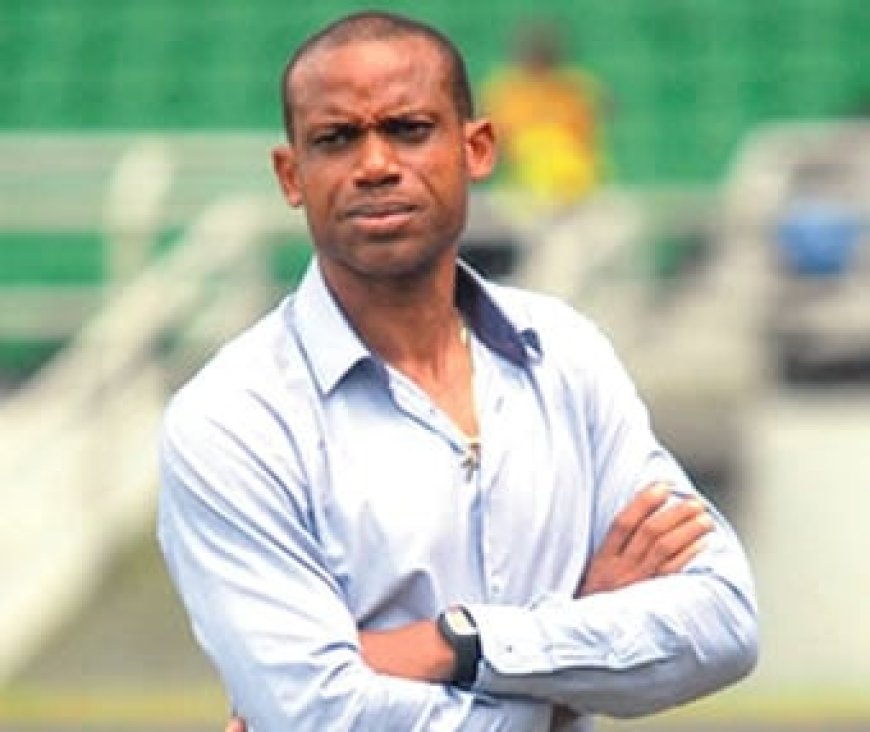Why I didn’t sue NFF over unpaid salaries — Oliseh

Former Super Eagles head coach Sunday Oliseh has revealed he refused to take legal action against the Nigeria Football Federation over unpaid salaries because he did not want to be seen as fighting against his country.
The 51-year-old tactician disclosed that the NFF still owes him $26,000 in unpaid salaries from his time in charge of the national team between 2015 and 2016.
Speaking on the Home Turf podcast, Oliseh expressed frustration over the lingering debt but made it clear that he has chosen not to take legal action against the federation out of respect for his country.
“Till today, I am the only Nigerian coach who ever resigned. And till today, they are still owing me two months’ salary, which is $26,000,” Oliseh said.
The former midfielder disclosed that many people have advised him to take the matter to FIFA, the world’s football governing body, as he believes he has a strong case.
“A lot of people have asked me to take the NFF to court. If I take the case to FIFA, I will win. But when the news breaks, the headlines won’t say ‘Oliseh takes NFF to court’, they will say ‘Oliseh takes Nigeria to court.’ And that’s not something I want to be associated with,” he continued.
Oliseh also emphasised that his decision is rooted in patriotism rather than weakness.
“I will not take my fatherland to a Western court. I love my country, and no matter what, I don’t want to be seen as someone fighting against Nigeria,” he added.
Oliseh’s tenure as Super Eagles coach ended abruptly in 2016 following disagreements with the NFF over unpaid salaries and alleged interference in team management.
The former Ajax and Juventus midfielder resigned from his position, becoming the first Nigerian coach to voluntarily step down from the role.
Despite the controversy surrounding his exit, Oliseh remains one of Nigeria’s most outspoken figures in football and has continued to speak on issues affecting the sport in the country.
His latest remarks reignite discussions about the long-standing issue of unpaid wages and poor treatment of local coaches in Nigerian football, a problem that has persisted for years without a lasting solution.
The revelation comes at a time when the NFF continues to face criticism over its handling of financial matters relating to national team coaches and players.
Several coaches and players have, over the years, complained about delayed or unpaid salaries and allowances, with some taking their cases to FIFA’s Dispute Resolution Chamber.
Oliseh, who was capped 63 times for Nigeria and scored three goals, enjoyed a distinguished playing career that saw him feature for top European clubs including Ajax Amsterdam, Borussia Dortmund and Juventus.
As a player, he was part of the Nigeria squad that won the 1994 Africa Cup of Nations and also featured at the 1994 and 1998 FIFA World Cups, famously scoring against Spain at the 1998 tournament in France.
His decision not to pursue legal action against the NFF, despite being owed money, highlights the complex relationship between Nigerian football administrators and those who serve the national team.









